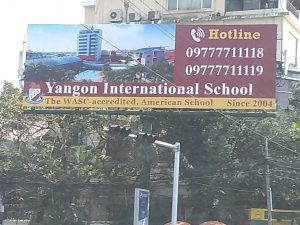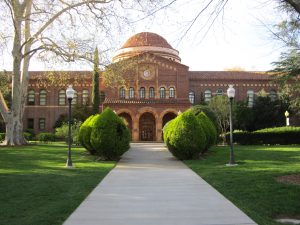by Tony Waters
“Together we WASC” has been the tagline coming from the Chico State administration in recent months. It is even featured at the bottom of some emails.

This refers to the accreditation process of the Western Association of Schools and Colleges, a private organization from Oakland, which is given the right to accredit all schools and colleges in the western United States by the U.S. Department of Education. Everything from Stanford University to universities in the South Pacific to secondary schools in Myanmar are reviewed.
Subjects covered range from engineering to theology. The schools are public, private for-profit, and private not-for-profit. All seek WASC’s imprimatur because it awards legitimacy in the eyes of students and donors. And most importantly to universities like Chico State, federal grant makers and federal student loan programs demand WASC accreditation. But very few are denied, or even put on probation.

For a major public university like Chico State, this should be a pro forma matter, which large well-established universities are well-equipped to deal with, with or without the PR effort making the word “WASC” into a verb. It simply involves an 80-page “self-report” and a three-day visit from a “WASC team” every 10 years.
The self-report, full of “educationese” jargon, is prepared by a well-paid administrator (or consultant) in a fashion that makes the current administration look good. It has the length of a master’s thesis, without, fortunately for the university, the rigor of anonymous peer review. The report repeats the vague goals of WASC for things like “student achievement,” however defined, “diversity” however counted, and a series of vaguer goals having to do with “educational effectiveness,” whatever that is.
The WASC team, whose identities are not available on Chico State’s website, received the 80-page report last September, met one day to ask some questions, and will come to Chico State for the first time on March 5-7 to “review the campus.” The inspection is done with a pomp associated with Queen Elizabeth reviewing the troops on a state visit to Australia, and each reviewer is tipped by Chico State with an “honorarium” of a few thousand dollars for their trouble. Fawning administrators will protect them from disgruntled students or faculty, and they will be housed in the executive suites at the best hotel in Chico (probably the Hotel Diamond!), where, after being wined and dined at university expense, they will decide to re-certify Chico State, just like they do various fly-by-night colleges and trade schools.
So just how did “WASC” become not only a verb as in “Together we WASC”? As is usual with such things, the message is in what is left out of the report. In the case of Chico State, the PR game is in my view a way of diverting campus and WASC attention away from serious problems at the university. In fact, Chico State went through a faculty revolt in December 2015 when the Academic Senate voted “no confidence” in the then-president and two vice-presidents because of mismanagement of business practices, opaque criteria for awarding raises, and a reluctance to hire new teaching staff — all while accepting more students. It is not clear from the WASC report whether these issues were addressed, much less identified for the reviewers, even though the three administrators cited by the no confidence resolution left the university within seven months, including the vice president for business who departed with a lucrative severance deal. A new president was in place by summer 2016, and new vice presidents were finally on the job only a year or two later.
What were the issues left out of the report? Following are a few of them. (If any of the reviewers read ChicoSol.org, perhaps they might raise some of these issues. I have written about how the glamorization of Chico State detracts from a broader world, and there has been ChicoSol coverage of my view that the university has been “in retreat” on internationalism, including foreign-language acquisition by its students.)

So why aren’t these issues in the WASC Self-Study Report? Or any other report? This goes back to the administrative style at Chico State, which values compliance with the vague WASC accreditation standards (WASCing!) over addressing issues raised by faculty and staff. This is symptomatic of the problems at Chico State between an administration that continues to be distant from the campus. That is the message WASC needs to hear. “Together we WASC?” No thanks, WASC is really not a good verb. I would rather see that “together we collaborate,” and I would hope that WASC would too.
The doors to Kendall Hall have been locked for the last two years or so because of some type of “risk” that administrators have, and apparently professors and students do not—only the one front door is now open for the public. Perhaps a good way to do this would be to unlock the doors to Kendall Hall where the administrators are writing reports, so that faculty and students again have open access, and the problems addressed in the Academic Senate’s “no confidence” resolutions of December 2015 can finally be addressed.
Tony Waters has taught at Chico State since 1996. In 2010-2011, he was awarded the Professor of the Year award by the university’s Academic Senate. Waters is the author of eight academic books, including books about bureaucratic behavior and the sociology of education. He is currently on leave in Thailand.
